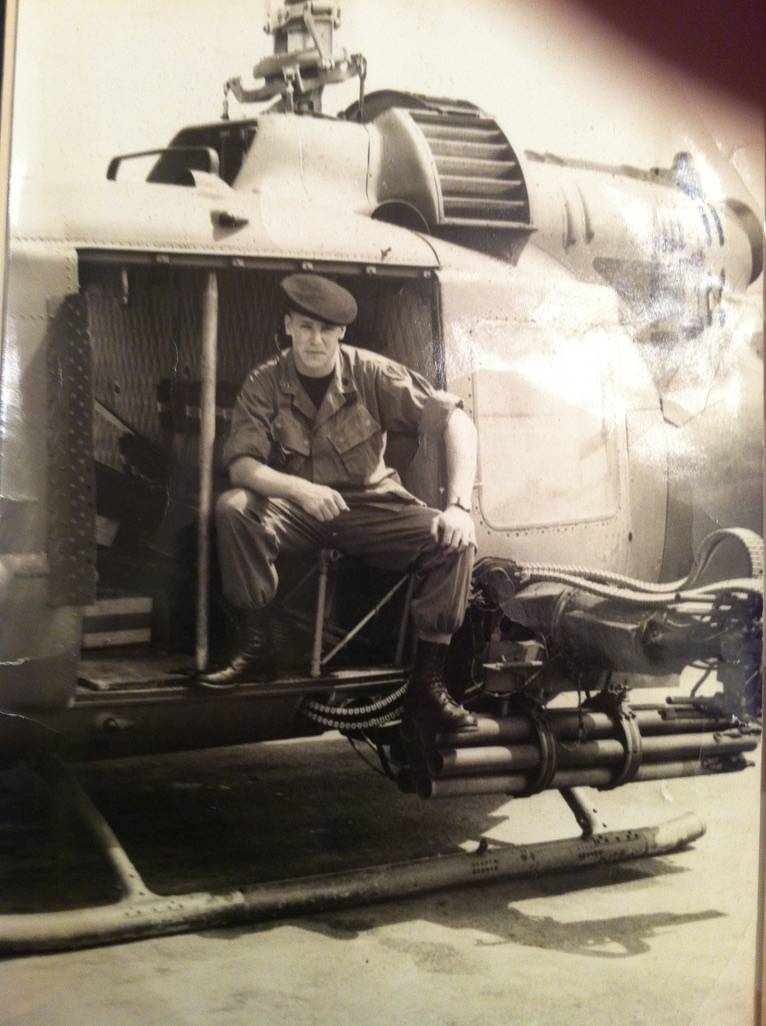For the past 20 years, Fred McCarthy wanted to write a memoir about his experiences as a U.S. Army officer and combat helicopter pilot in the Vietnam War.
“It was probably the most exciting part of my life,” said McCarthy, who enlisted when he was 21.
The former Langley mayor, who now resides in Bellingham, took the initiative about three years ago and contacted an independent publisher that specializes in nonfiction.
His book, titled “Coming All the Way Home,” is slated to be released this spring by McFarland & Company Inc.
Besides stories and reflections, the memoir contains photographs, poems written by McCarthy during his tour and letters he sent home to his mother.
Both of McCarthy’s parents served in the Army during World War II. His mother was a nurse and his father was the commander of a company.
“I always heard about their adventures in the war,” McCarthy said, “and I enlisted because it was patriotic at the time to help a country determine its own destiny, it was an adventure because I was going to get to go to flight school and learn how to fly helicopters and it was just an exciting thing to do.”
Before enlisting, McCarthy was a student at St. Edward Seminary near Lake Washington. Life became a lot different when he started attending school to become an Army warrant officer, where he learned to fly aircraft.
During the war, he flew gunships for seven months for the 121st Assault Helicopter Company, also known as the “Soc Trang Tigers.” The gunship platoon for the company was called the Vikings. He was stationed in the southern part of Vietnam, near the region of the Mekong River Delta and just outside the city of Soc Trang.
McCarthy flew 1,300 hours of combat missions. He had some close calls — two of which involved engine failures.
In one instance, the emergency occurred during the nighttime. After successfully auto-rotating the aircraft down to the ground, a medical evacuation helicopter was able to pick up McCarthy and his crew. As they were flying away, the Viet Cong overran the downed aircraft and blew it up.
He encountered engine failure another time while flying with a load of explosive devices onboard. He and the other pilot were able to auto-rotate the helicopter down to the ground, although it did get smashed up in the process.
Bullets from the enemy hitting the bottom of the aircraft, he said, “sounded like someone pounding on the side of the helicopter with a hammer.”
McCarthy was also responsible for overseeing a hospital, a prisoner of war camp and an orphanage. When he wasn’t flying missions, McCarthy helped out the people running these facilities. He would write letters to his former classmates, asking them to send clothes and medicine that would go to these places.
In addition, he wrote the newsletter for his company.
“It’s one of the most productive times of your life,” McCarthy said. “Even though you’re young, you’re given enormous responsibility.”
McCarthy was in Vietnam 1967-68, which included one of the deadliest days of the war for Americans, shortly after the Tet Offensive was launched. At one point in the war, for about a two-month period, he lived in a helicopter, sleeping under it at night and flying it by day.
Some of his decision-making and leadership experiences during the war would go on to inform positions of authority in other areas of his life. Besides serving as the mayor of Langley for three years, McCarthy was also the superintendent for the South Whidbey School District for five years and the director for the Whidbey Veterans Resource Center for two years. He is currently an adjunct professor at Western Washington University.
McCarthy acknowledged that he has been blessed to have such a successful career. He said it is common to hear about veterans who have a hard time adjusting to civilian life after fighting in the war, but for whatever reason he did not have that difficulty.
Since the Vietnam War ultimately did not result in a victory for the U.S., many people may want to leave it behind completely.
“I chose to write about it in my book so people would know what it was like to be there, how you dealt with it, and how it affected you for the rest of your life,” McCarthy said.
He is hopeful “Coming All the Way Home” will appeal to a wide range of people.
He is grateful for the support he received from a writing group he was part of when he lived on Whidbey, as well as an author from Langley who was his mentor during the book-writing process.
McCarthy encourages people to watch for the book’s release this spring. He plans to do a book-signing at Moonraker Books in Langley.
• For information on McCarthy’s memoir, visit mcfarlandbooks.com/product/Coming-All-the-Way-Home



